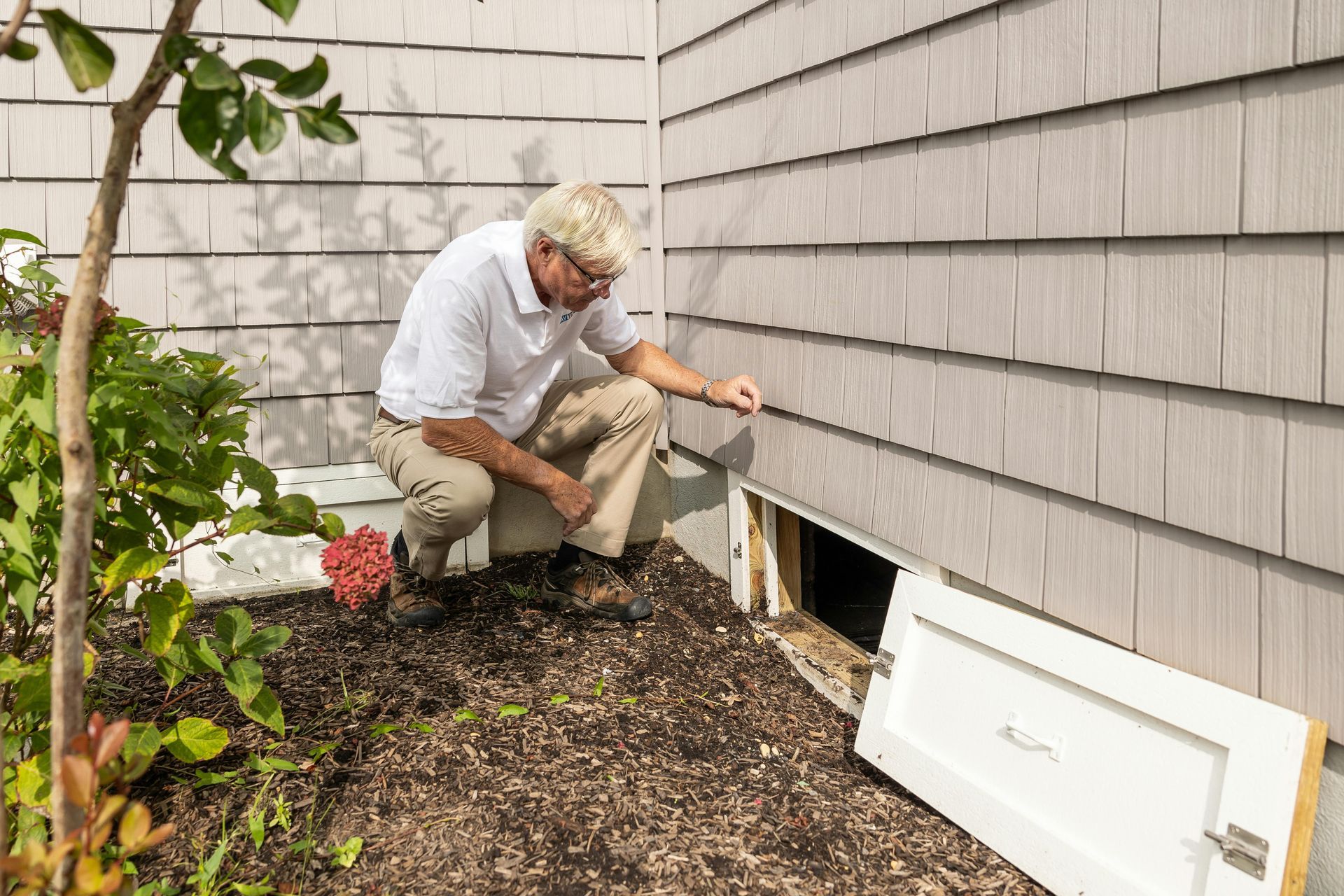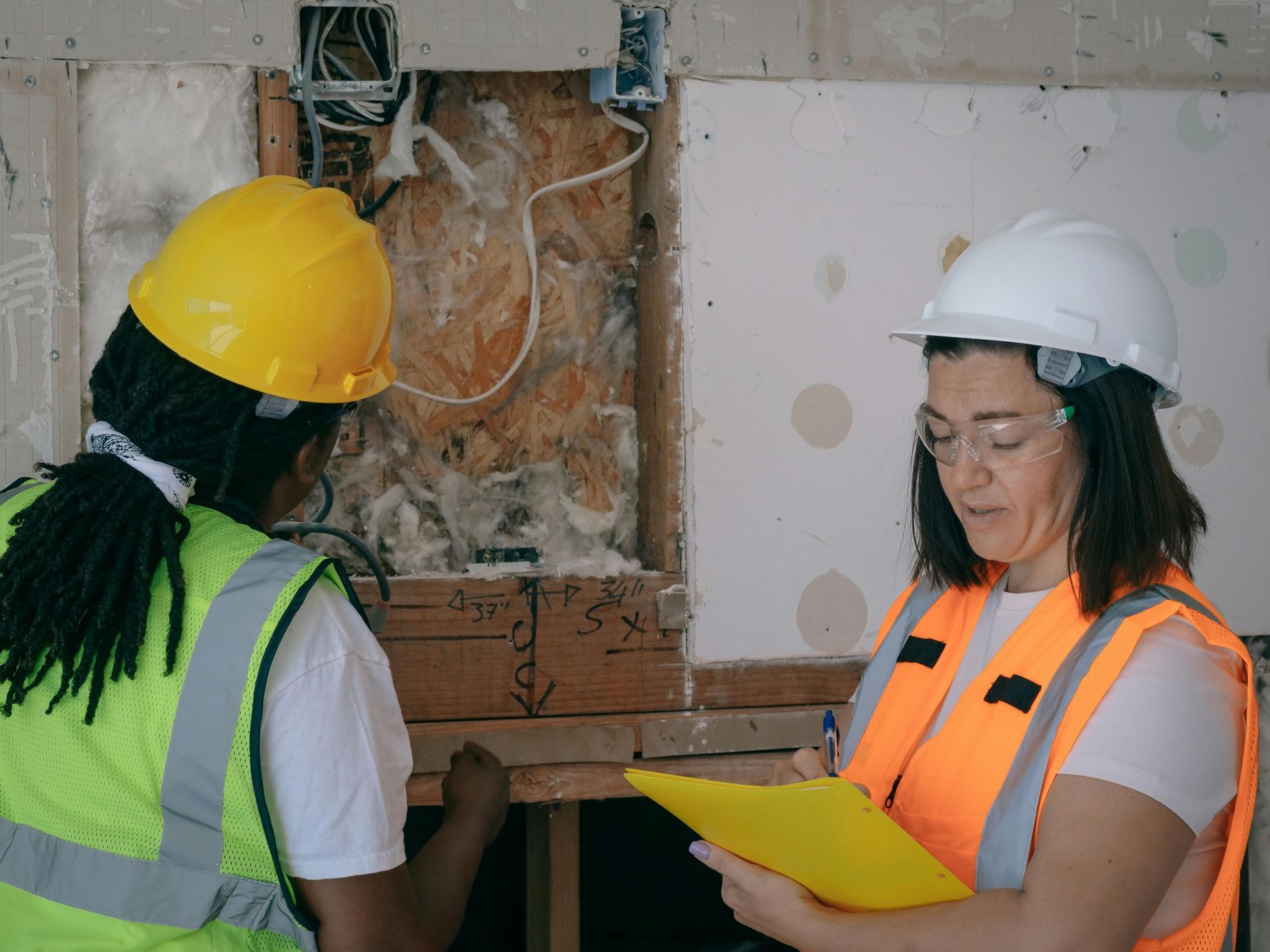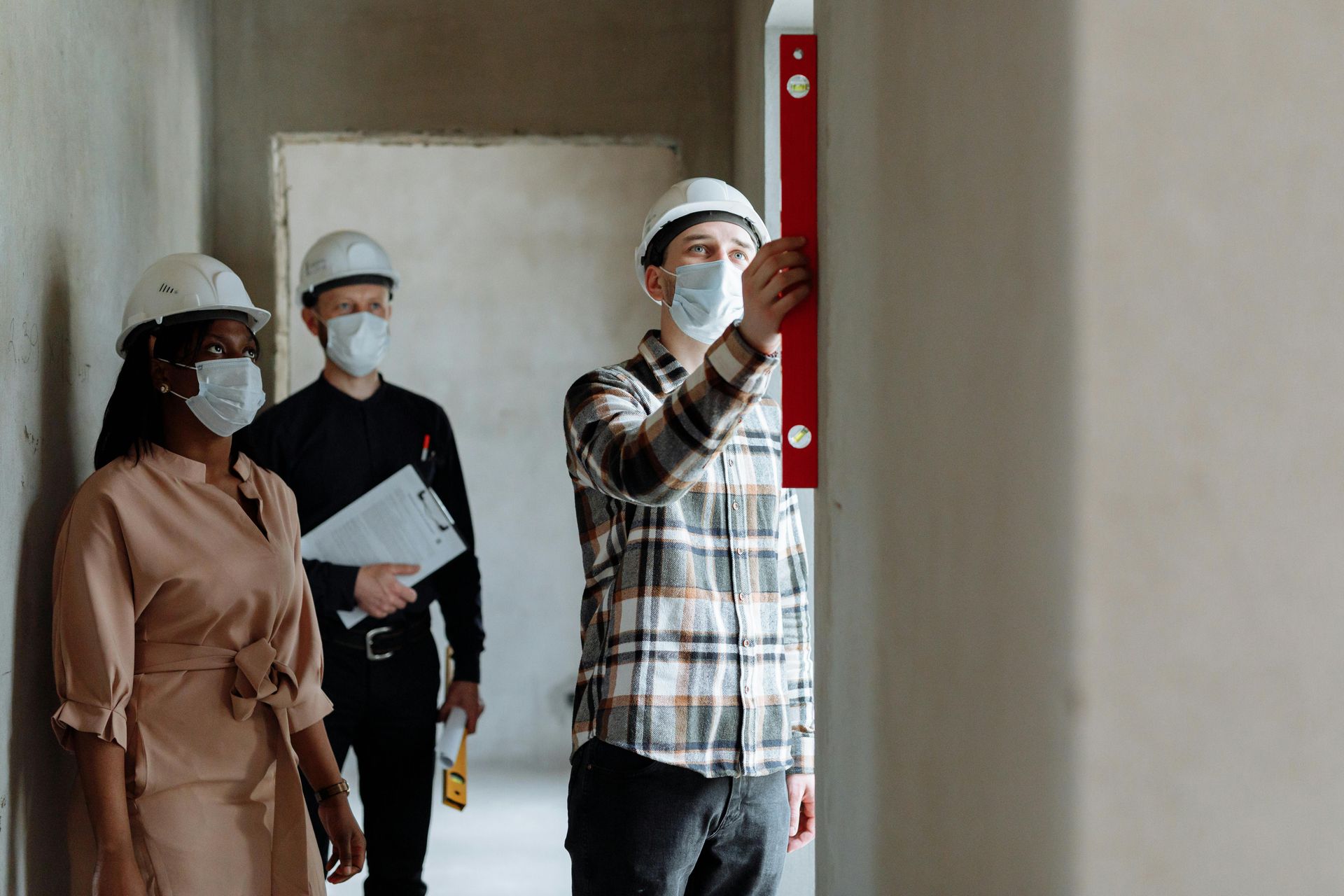Top 10 Things That Fail in a Home Inspection (Chicago Edition)
Home inspections in Chicago reveal specific patterns of failure due to the city's unique climate, aging housing stock, and building requirements. Understanding what commonly fails during a Chicago home inspection can help buyers and sellers prepare for the process and avoid costly surprises.
Chicago's harsh winters, humid summers, and diverse architectural styles from different eras create specific challenges that building inspectors in Chicago encounter regularly. These environmental factors, combined with the city's rigorous inspection standards, make certain home components particularly vulnerable to failure during the inspection process.
Key Takeaways
- HVAC systems are the most common source of house inspection fails in Chicago due to extreme weather demands
- Electrical panels in older Chicago homes frequently require updates to meet current safety codes
- Roofing problems are amplified by Chicago's severe weather conditions and ice dam formation
- Plumbing issues often stem from aging infrastructure and freezing temperatures
- Foundation problems are common in Chicago's clay soil conditions
- Windows and doors face unique challenges from temperature fluctuations and settling
1. HVAC System Problems
Heating, ventilation, and air conditioning systems top the list of things that fail in a home inspection across Chicago. The city's extreme temperature variations place enormous stress on these systems, leading to frequent breakdowns and inefficiencies.
Building inspectors in Chicago commonly find furnaces with cracked heat exchangers, particularly in older units that have endured decades of heavy use. Gas furnaces may show signs of carbon monoxide leaks, while older boiler systems often have circulation issues or outdated safety controls. Air conditioning units frequently fail due to refrigerant leaks, damaged compressors, or inadequate electrical connections.
Ductwork presents another major concern during Chicago inspection processes. Inspectors regularly discover poorly sealed ducts, inadequate insulation in crawl spaces and basements, and improper ventilation that reduces system efficiency. Many older Chicago homes have ductwork that was never designed to handle modern HVAC demands, leading to uneven heating and cooling throughout the property.
2. Electrical System Deficiencies
Electrical systems rank among the top house inspection fails in Chicago, particularly in the city's numerous older properties. Many homes built before 1960 still contain outdated electrical panels, knob-and-tube wiring, or aluminum wiring that no longer meets current safety standards.
Federal Pacific Electric panels, common in Chicago homes built between 1950 and 1980, are frequently flagged by building inspectors due to their known fire hazards. These panels often fail to trip properly during electrical overloads, creating serious safety risks. Similarly, fuse boxes in older properties typically require complete replacement to handle modern electrical demands.
Grounding issues constitute another frequent problem found during Chicago home inspections. Many older properties lack proper grounding systems, particularly in bathrooms and kitchens where GFCI outlets are required. Inspectors also commonly find overloaded circuits, improper wire splicing, and outlets that are too close to water sources. Extension cord usage as permanent wiring solutions and DIY electrical work without proper permits frequently appear in inspection reports.
3. Roofing and Exterior Issues
Chicago's severe weather conditions make roofing problems a leading cause of inspection failures. The combination of heavy snow loads, ice dams, high winds, and temperature fluctuations creates unique challenges for residential roofing systems.
Asphalt shingles in Chicago homes commonly show premature aging due to repeated freeze-thaw cycles. Building inspectors frequently find missing or damaged shingles, particularly on south-facing slopes that experience the most dramatic temperature changes. Ice dam damage along roof edges is particularly common, often leading to water infiltration and interior damage.
Gutters and downspouts face constant stress from Chicago's weather patterns. Inspectors regularly discover loose or damaged gutters, improper drainage systems, and downspouts that direct water too close to foundation walls. Flat roofs, common on Chicago's bungalows and two-flats, often show membrane damage, ponding water, or inadequate drainage systems.
Chimney problems also rank high among Chicago inspection failures. Older brick chimneys frequently have mortar deterioration, damaged caps, or missing flashing that allows water penetration. Many properties have abandoned chimneys that were never properly sealed, creating energy loss and potential safety hazards.
4. Plumbing System Failures
Plumbing systems in Chicago homes face unique stresses that contribute to frequent inspection failures. The city's aging infrastructure, combined with extreme temperature variations, creates conditions that accelerate plumbing deterioration.
Galvanized steel pipes, common in Chicago homes built before 1960, are frequently flagged during inspections due to corrosion and reduced water flow. These pipes often show significant mineral buildup that restricts water pressure and creates potential health hazards. Cast iron drain pipes, while durable, eventually develop rust and blockages that require extensive repairs.
Water pressure problems appear regularly in city inspection Chicago reports. Older homes may have inadequate water pressure due to corroded pipes, while newer homes sometimes have pressure that exceeds safe levels. Water heaters frequently fail inspection due to improper venting, lack of temperature relief valves, or installation code violations.
Frozen pipe damage represents a uniquely Chicago problem that inspectors encounter regularly. Pipes in unheated areas, inadequately insulated walls, or near exterior walls often show signs of freeze damage. Sump pump systems, essential in many Chicago basements, frequently require repair or replacement due to motor failure or inadequate capacity.
5. Foundation and Structural Concerns
Chicago's clay soil conditions and freeze-thaw cycles create specific foundation challenges that building inspectors in Chicago encounter regularly. The expansive clay soil common throughout the region shifts significantly with moisture changes, placing constant stress on foundation systems.
Settlement cracks in basement walls are among the most common structural issues found during Chicago home inspections. While minor settling is normal, inspectors look for signs of ongoing movement, water infiltration, or structural compromise. Bowing walls, particularly in older homes with stone or brick foundations, require immediate attention and often indicate serious structural problems.
Basement waterproofing failures frequently appear in inspection reports. Many older Chicago homes lack adequate moisture barriers, proper drainage systems, or functioning sump pumps. Inspectors commonly find evidence of water damage, mold growth, or inadequate ventilation in basement areas.
Support beam problems also rank among the common house inspection fails in Chicago. Older homes may have undersized support beams, damaged posts, or inadequate bearing points. Sagging floors, particularly in homes with large spans or heavy load requirements, often indicate structural deficiencies that require professional evaluation.
6. Window and Door Problems
Windows and doors in Chicago homes face extreme temperature variations and settling that contribute to frequent inspection failures. The city's harsh weather conditions accelerate wear on seals, frames, and operating mechanisms.
Single-pane windows in older Chicago properties are commonly flagged during inspections due to energy inefficiency and safety concerns. Many older windows have broken sash cords, damaged glazing compound, or frames that no longer provide adequate weather sealing. Storm windows, while helpful, often show signs of damage or improper installation.
Door problems frequently include settling issues that prevent proper closing, damaged weather stripping, or inadequate security features. Basement doors and garage doors often fail to meet current safety standards, particularly regarding automatic reverse mechanisms or proper ventilation.
Thermal efficiency problems with windows and doors contribute significantly to energy costs in Chicago's climate. Inspectors commonly find inadequate caulking, damaged weather stripping, or improper installation that allows air infiltration and energy loss.
7. Insulation and Energy Efficiency
Inadequate insulation ranks among the most common things that fail in a home inspection in Chicago, particularly given the city's extreme temperature variations. Many older properties lack sufficient insulation to meet current energy efficiency standards.
Attic insulation problems are frequently discovered during Chicago home inspections. Older homes may have insufficient R-values, compressed insulation that has lost effectiveness, or gaps that allow significant heat loss. Vermiculite insulation, common in homes built before 1980, may contain asbestos and requires special handling.
Basement and crawl space insulation often shows signs of moisture damage, improper installation, or inadequate coverage. Many Chicago homes have unfinished basements with exposed foundation walls that lack any insulation, creating significant energy loss during heating season.
Air sealing problems frequently accompany insulation deficiencies. Building inspectors commonly find gaps around pipes, electrical penetrations, or architectural features that allow conditioned air to escape and outside air to enter.
8. Safety and Code Compliance Issues
Safety violations constitute a significant category of house inspection fails in Chicago, where building codes are strictly enforced. Many older properties require updates to meet current safety standards for smoke detectors, carbon monoxide detectors, and emergency egress.
Smoke detector problems are among the most common code violations found during inspections. Older homes may have insufficient detector coverage, outdated battery-powered units, or detectors that are not properly interconnected. Carbon monoxide detectors, required in all Chicago homes with fossil fuel appliances, are often missing or improperly located.
Egress window requirements frequently create compliance issues in Chicago home inspections. Basement bedrooms must have windows that meet specific size and accessibility requirements for emergency escape. Many finished basements lack proper egress windows or have windows that are blocked by window wells or landscaping.
Stairway safety violations commonly appear in inspection reports. Handrails, guardrails, and step dimensions must meet current codes, while many older homes have staircases that were built to different standards. Basement stairs often lack proper lighting or have inadequate headroom clearance.
Common Chicago Home Inspection Failure Table`
| System/Component | Failure Rate | Common Issues | Repair Cost Range |
|---|---|---|---|
| HVAC System | High | Cracked heat exchangers, ductwork problems | $500 - $8,000 |
| Electrical Panel | High | Outdated panels, grounding issues | $800 - $3,500 |
| Roofing | Medium-High | Shingle damage, ice dam issues | $300 - $15,000 |
| Plumbing | Medium | Galvanized pipes, water pressure | $200 - $5,000 |
| Foundation | Medium | Settlement cracks, waterproofing | $500 - $10,000 |
| Windows/Doors | Medium | Energy efficiency, operation | $200 - $8,000 |
9. Appliance and Built-in System Failures
Built-in appliances and systems frequently fail Chicago home inspections due to age, maintenance issues, or installation problems. Garbage disposals, dishwashers, and other kitchen appliances often show signs of wear or improper installation.
Range hoods and kitchen ventilation systems commonly fail inspection due to inadequate venting, grease buildup, or electrical problems. Many older installations lack proper ducting to the exterior, simply recirculating air rather than removing cooking odors and moisture.
Built-in bathroom exhaust fans frequently require repair or replacement during inspections. Older fans may be noisy, ineffective, or improperly vented. Many bathroom fans discharge into attic spaces rather than outside, creating moisture problems and potential mold growth.
Whole-house fans, common in older Chicago homes, often fail inspection due to worn motors, damaged louvers, or electrical issues. These systems require proper maintenance and often need updates to meet current electrical codes.
10. Exterior and Landscaping Issues
Exterior drainage and landscaping problems frequently contribute to house inspection fails in Chicago. Poor grading around foundations, inadequate drainage systems, and vegetation that threatens building integrity are common concerns.
Grading problems that direct water toward foundations rather than away from the building create serious risks for basement flooding and foundation damage. Many Chicago properties have settling that has altered original grading patterns, requiring corrective work to ensure proper drainage.
Tree and vegetation issues commonly appear in inspection reports when branches threaten roofing or electrical systems. Large trees too close to buildings can damage foundations, while overgrown vegetation can trap moisture against building materials.
Deck and porch problems are frequently discovered during exterior inspections. Older wooden structures may have rotting support posts, loose railings, or inadequate connections to the main building. Many porches lack proper drainage systems, leading to water damage and structural deterioration.
Frequently Asked Questions
What are the most common house inspection fails in Chicago?
HVAC systems top the list due to extreme weather demands, followed closely by electrical panel issues in older homes. Roofing problems and plumbing failures also rank among the most frequent inspection concerns.
How long does a typical Chicago home inspection take?
Most comprehensive home inspections in Chicago take 3-4 hours for average-sized properties. Larger homes or properties with significant issues may require additional time for thorough evaluation.
Can I attend my home inspection in Chicago?
Yes, buyers are encouraged to attend their Chicago inspection to ask questions and learn about the property. Building inspectors typically welcome buyer presence and can explain findings in detail.
What happens if my Chicago home fails inspection?
A failed inspection doesn't end the sale process but provides information for negotiations. Buyers can request repairs, price adjustments, or credits from sellers based on inspection findings.
How much does a home inspection cost in Chicago?
Chicago home inspection costs typically range from $400-$800, depending on property size and scope. Additional specialized inspections for items like radon or sewer lines may cost extra.
Final Thoughts
Understanding common inspection failures helps Chicago homebuyers and sellers prepare for the process and avoid surprises. While this list covers the most frequent issues, every property is unique and may present different challenges based on age, construction type, and maintenance history.
Working with qualified building inspectors in Chicago ensures a thorough evaluation of all critical systems and components. Professional inspections provide valuable information for making informed decisions about property purchases and help identify maintenance priorities for new homeowners.
Don't let hidden problems surprise you. Get a comprehensive Chicago home inspection and buy with confidence.
Reference:
https://en.wikipedia.org/wiki/Federal_Pacific_Electric_Corporation




